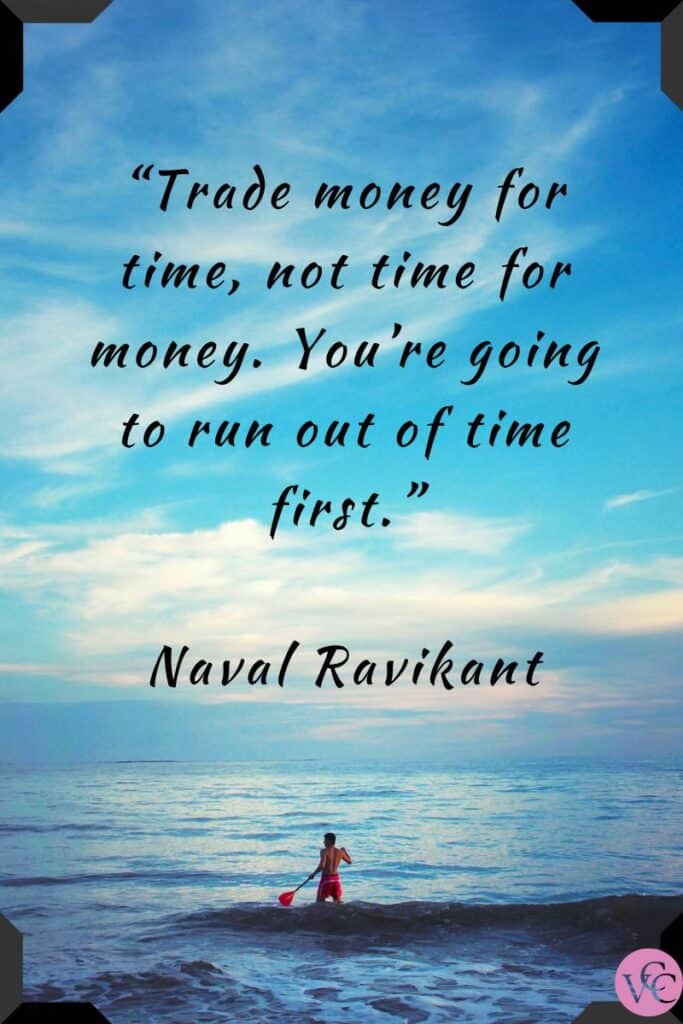
Money isn’t just numbers in a bank account – it’s energy, emotion, and story. It reflects how we see ourselves, what we believe we deserve, and how safe we feel in the world.
If your relationship with money feels like a rollercoaster – moments of abundance followed by anxiety, guilt, or scarcity – it’s time for a reset.
This isn’t about budgets or spreadsheets (though they matter). It’s about rewriting your money story – shifting from survival and shame to clarity, confidence, and control.
Let’s walk through this transformation together.

Reflect On Your Money Story
Every one of us has a “money story.” It’s shaped by how we grew up, what we witnessed, and what we were told – that money is hard to earn, that wealth is selfish, or that “people like us” never get ahead.
For years, I carried those same stories. I used to think “If I just had more money, my problems would go away.” But then I met someone who earned less than I did – and yet, she had more freedom, more peace, and more savings.
That moment flipped everything for me.
I stopped seeing money as a barrier and started seeing it as a tool – something I could learn to manage, direct, and multiply.
Ask yourself, What do I believe about money? Where did those beliefs come from? And are they still serving me?
The answers will surprise you; and they’ll be your first step toward freedom.
Set Clear Financial Boundaries
Money boundaries aren’t about being stingy. They’re about self-respect. Say no to financial guilt. Say yes to protecting your peace.
This could look like:
- Taking time before saying “yes” to lending money or large purchases.
- Setting limits on online shopping or gift spending.
- Prioritizing your own needs before rescuing others.
These boundaries don’t make you selfish. They make you sustainable and safeguard your financial, emotional, mental, and physical well-being. Just like the oxygen mask on a plane, you can’t anyone else until you’ve secured your own.
Define Your Financial Goals
Clarity creates confidence. A goal like “I want to save more” isn’t a plan – it’s a wish. But a goal like “I’ll save £15,000 for a new car by October 2024” turns a dream into direction.
When you name what you want and set a deadline, your brain starts building a roadmap. And small, consistent steps turn into extraordinary progress.
Create A Realistic Budget
A budget is a compass. When I first tracked my spending, I was shocked. I realized I’d been living in quiet denial. Seeing the numbers was uncomfortable, but it was also freeing.
Once you know where your money goes, you can redirect it; toward your savings, your peace of mind, and your future.
Budgeting is how you tell your money where to go instead of wondering where it went.
Forgive Yourself For Your Past Financial Mistakes
If you’ve made money mistakes, welcome to the human experience. Debt, bad investments, missed opportunities; they don’t define you. What defines you is your decision to learn, grow, and move forward.
Let go of the guilt. It doesn’t serve your next chapter.
Your past decisions were made with the information and mindset you had then. Now you know more – and that changes everything.
Educate Yourself About Personal Finance
Financial literacy is freedom. You don’t have to become a financial expert; but you do need to understand the basics: interest rates, credit, saving, and investing.
Start with one small action – a book, a podcast, a short course. Every bit of knowledge adds another layer of confidence.
Money rewards awareness. The more you learn, the more powerful you become.
Practice Mindful Spending
Every purchase is a decision about your future. Before you spend, pause and ask: Does this align with my goals? Will this bring lasting value?
When you become intentional, you spend less out of habit and more out of purpose. Mindful spending is about choosing what truly matters.
Tackle Debt Strategically
Debt doesn’t have to be a life sentence. It can be a bridge; if used wisely.
Separate good debt (that builds assets or skills) from bad debt (that drains without return). Then choose a repayment strategy that fits your lifestyle; the snowball method (smallest balance first) or the avalanche method (highest interest first).
Celebrate progress, however small. Every payment is a declaration of freedom.
Build An Emergency Fund
An emergency fund isn’t just financial; it’s emotional security. It’s the quiet confidence of knowing that if life surprises you, you’ll be okay.
Even starting small; one month’s expenses; can change how you sleep at night. This is your financial safety net, your peace of mind fund.
Invest in Your Future
Once your foundation is steady, make your money grow. Investing doesn’t have to be intimidating. Start with what you understand and build from there – whether that’s a retirement plan, index funds, or a small side business.
Every pound you invest is a vote for your future self.
Cultivate A Positive Money Mindset
Transformation begins in your thoughts. For years, I carried scarcity – fear that there would never be enough.
Then I started practicing gratitude and affirmations daily, and my entire relationship with money changed.
Some of my favourites include:
- Money flows to me easily and joyfully.
- I use money for good, and it returns to me multiplied.
- I am worthy of abundance in every form.
When you move from fear to faith, from lack to abundance, you invite wealth into your life in ways that go far beyond your wallet..
Review and Adjust Regularly
Money mastery isn’t one decision but a rhythm. Review your finances weekly or monthly. Celebrate your wins. Adjust what’s not working.
Life changes, and so should your financial plan. Small, consistent attention keeps your goals alive; and keeps you in charge.
Related Posts:
- 20 Best Personal Finance Books You Need To Read
- How Your Money Beliefs Are Holding You Back – And What to Do About It Right Now
- 12 Simple Strategies to Overcome Limiting Money Beliefs
- My Top 104 Money Quotes of All Time
The Heart Of It All
Improving your relationship with money is about partnership. Money doesn’t define you. It reflects how you see yourself, what you believe you deserve, and the future you’re willing to claim.
When you rewrite your money story, you don’t just change your bank balance – you change your life. You step into confidence, into peace, into possibility.
Your financial freedom starts with one brave decision: to see money not as your master, but as your ally.
It’s time to take back that power. And the best time to start is right now.
What about you? What’s one step you’re taking today to rewrite your money story? Share it in the comments – your story might just inspire someone else’s breakthrough.
Thank you for being a VCC reader.

